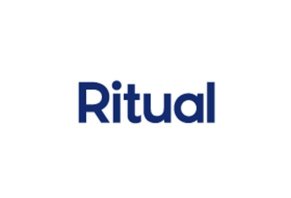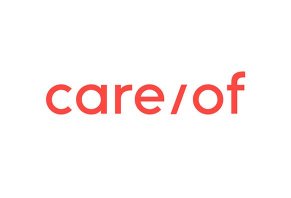Ritual Vitamins

Summary
Ritual’s women-only vitamins are designed to give you everything you need to round out diet deficiencies without any unnecessary additives or otherwise problematic ingredients. Although safe and effective, vitamins are not always necessary.
Ritual Vitamins Reviews - Is It Effective?
Medically Reviewed by Anthony Dugarte, M.D., C.S.C.S
What is Ritual Vitamins?
Ritual is a brand of multivitamins and prenatal vitamins designed specifically for women utilizing a subscription-based model.
These clear pills gained attention through social media because of their photogenic appearance, but the company claims that their multivitamins should be praised more for their ingredients list.
They state that each capsule is vegan-friendly, gluten-free, non-GMO, and free of colorants and synthetic fillers.
The idea for the Ritual brand began when founder Katerina Schneider became pregnant and didn’t like the quality or types of ingredients in available women’s supplements.
Ritual’s website makes it clear that each component is scrupulously researched and sourced from a top quality manufacturer so that customers can know precisely what they are putting into their bodies.
Is there anything beyond their artful Instagram photos that makes it worth giving Ritual Vitamins a chance? We looked through the facts to help you decide.
Available Options
Ritual offers three vitamin options:
- Multivitamins for Women (age 18-50)
- Multivitamins for women over 50
- Essential Prenatal.
Below, we’ve highlighted some of the differences between them.
Essential for Women
Essential for Women vitamins from Ritual are designed to boost your mood, elevate your energy and improve the functioning of your heart, nerves, and mental capabilities.
Each bottle contains sixty pills and comes with a food-grade insert that is infused with peppermint oil. You are instructed to take two pills per day, and the company states that the benefits you can expect will change the longer you take them.
- Month 3: Fills in nutrition gaps to boost your energy, immunity, and skin health.
- Month 6: Supports red blood cell formation for internal organ health.
- Month 12: Helps your body utilize calcium from your diet for better bone health.
- Ongoing: Supports the aging process by helping your body maintain tissue structure and fight free radical damage.
Essential Prenatal
These supplements are meant for women who are thinking, trying, or already pregnant.
Like with Essential for Women, each bottle contains 60 capsules and a standard dosage is two per day. Essential Prenatal bottles come with a lemon essential-oil-scented food-grade insert.
Ingredients
Below, we’ve gone through the ingredients in both supplement varieties and highlighted relavent scientific research to give you a quick sense of their purported health benefits. If the concentration changes between the standard and prenatal supplement we’ve highlighted that:
Boron (1 mg)
This mineral affects the way the body handles other minerals like calcium, magnesium and phosphorous, and it works to increase estrogen levels in older adults, which consequently improves bone health and mental functioning.
In 12 women, boron supplementation at at 3mg/day boosted estradiol levels nearly 2x, the strongest estrogen in your body.
Folate (600 mcg, 1000 prenatal)
Also known as vitamin B-9, folate supports red blood cell formation for healthy cell growth. Adults need at least 400 mcg per day, and the nutrient is crucial for reducing the risk of birth defects during the early stages of pregnancy.
In 81 women with a previous pregnancy that resulted in a birth defect, 5mg of folic acid at 5mg daily for more than 10-weeks dropped the rate of recurrence to 0%.
Iron (8 mcg, 18 prenatal)
You need iron for numerous physical processes, and too little can lead to low energy, less efficient recovery after exercise, and stomach problems.
Menstrual disorders, like heavy bleeding, make up 5%–10% of the women with iron deficiency anemia. In a national sample of US women age 18-49, those pregnant, with multiple children, and with regular periods had significantly lower iron.
Magnesium (50 mg, 30 prenatal)
As a driver of over 300 enzymatic reactions within your body, magnesium helps your body metabolize food, transmit neural impulses, and boost calcium absorption for better bone health.
200 mg of magnesium over the course of 2 menstrual cycles reduced symptoms of premenstrual symptoms and bloating when compared to placebo.
Omega-3 (320 mg, 300 prenatal)
Primarily found in fish but sourced from algae for Ritual supplements, omega-3s are polyunsaturated fatty acids that can lower your risk of heart disease, arthritis, and even depression.
341 pregnant women were started on fish oil or corn oil at 18-weeks. The children of those started on fish oil scored higher on mental assessments at age 6 and 9-months.
Vitamin B12 (8 mcg)
This compound plays a critical role in the health of your nerve and blood cells, and adequate levels prevent fatigue and muscle weakness.
B12 may also be associated with risk for birth defects. B12 concentrations less than 250 ng/L in pregnant women were associated with a high risk of birth defects.
Vitamin D3 (50 mcg)
Also known as the sunshine vitamin, Vitamin D is necessary for health because it helps you maintain strong bones and teeth and potentially reduces your risk of developing cancer, type 1 diabetes, and multiple sclerosis.
As 40-60% of the US population is vitamin D deficient, supplementation is often necessary. A review of 15 trials found results to be inconclusive.
Hwoever, 3 trials included in their analysis found that the combination of vitamin D and calcium to reduce the risk of pregnancy-associated high blood pressure.
Vitamin E (7 mg)
Another antioxidant, this also helps boost immune function, widens blood vessels, and prevents the blood inside from clotting.
These effects were highlighted in those that took 100 mg of Vitamin E daily.
Vitamin K2 (90 mcg)
This rare nutrient works to improve blood clotting as well as bone and heart health.
In 244 postmenopausal women, those taking 180 μg of vitamin K2 slowed age-relate decreases in bone mineral density compared to placebo.
Ingredients only included in Essential Prenatal:
Biotin (300 mcg)
Commonly known as Vitamin B7, biotin is used by your body to help you metabolize fat, carbohydrates and protein, and it plays a role in skin and hair health.
Ritual Vitamins offers about 10x the recommended allowance for biotin.
Biotin deficiency may be more likely in pregnant women with “morning sickness”.
Choline (55 mg)
Most famous for preventing liver disease, choline is also taken by pregnant women to lower the risk of their babies developing neural tube defects.
Women in their third trimester of pregnancy were randomized to 480mg or 930mg of choline daily; when tested for information processing speed at 4,7,10, and 13-months, children of the 930mg dose group had higher scores.
Iodine (150 mcg)
The thyroid relies on iodine to function correctly, and a deficiency can lead to fertility problems and a higher risk of developing breast cancer.
Ritual Vitamins offers the recommended daily allowance for adults, though pregnant women are recommended to consume 220mcg.
The importance of iodine in pregnancy was demonstrated in a study examining deficiency in expecting mothers in their first trimester. Those with mild to moderate deficiency had children with lower IQ, reading accuracy, and reading comprehension.
The Cost
- Multivitamins for women aged 18-50: $30/month
- Multivitamins for women 59+: $35/month
- Prenatal Vitamins: $35
All vitamins are part of a mandatory subscription program, which means that you will be billed monthly for a new supply until you choose to cancel your order.
You can pause or cancel your subscription at any time through your online account without penalty, so long as the next month’s supply hasn’t been shipped out.
If you aren’t happy with the supplements, Ritual promises to refund your first purchase at no cost to you.
Do You Really Need to Take Vitamins?
There’s a lot of confusion these days about whether there are benefits to taking a multivitamin.
According to the 2007–2010 National Health and Nutrition Examination Survey (NHANES), just under half of Americans take a daily dietary supplement, and a third of those use a multivitamin. However, for the majority of us, these products are unnecessary.
Multivitamins have very little evidence suggesting that they may add substantial health benefits to one's health.
Part of the reason is that most of us aren’t deficient in the first place, as the bulk of processed foods have been enriched with many of the compounds we need.
This means that even those who don’t follow a healthy, whole foods diet aren’t likely to have a high risk of dangerous nutrient deficiencies.
Otherwise healthy women probably don’t need a multivitamin but that persistent digestive problems have led many women to be deficient in Vitamin D, B12, and calcium because they can’t fully ingest them from their food.
In these cases, a multivitamin might offer another chance to absorb these compounds.
While food should always be your first line of defense for fulfilling your nutritional needs, a quality multivitamin might help you fill in the gaps if you’re coming up short or if extenuating circumstances (like an illness or a pregnancy) are taxing your body and your system needs extra support.
Alternatives
Personalized wellness is a trend that shows little sign of slowing down, which means that there are dozens of companies today offering multivitamins to improve your health. Two of Ritual’s top competitors include Care/of and Persona Nutrition.
Care/of is a monthly vitamin subscription service. Unlike Ritual, everyone doesn’t receive the same supplements. Instead, the company relies on a five-minute online assessment of your health and habits to determine what nutrients you’re lacking.
Based on the assessment’s recommendations, Care/of customers can customize vitamin packs from more than 30 herbs, vitamins, and probiotics.
These are then shipped to you on a subscription basis in 30 single-serving packets that contain all the pills you need to take each day. Your total cost depends on what you select, but most people will spend between $30-$60 per month.
Persona Nutrition has the same business model as Care/of. You’ll take a pre-assessment and then choose the vitamins and supplements you want to order based on the company’s recommendation.
One way that Persona Nutrition stands out is that they take your current medications into account for their suggestions and won’t recommend any supplements that may interact with them.
The monthly price for Persona Nutrition supplements will vary based on your order, but my experimentation with the platform showed that costs range from $30–$75 per month.
Of these options, is one better than the rest? Care/of and Persona Nutrition offer a more personalized supplement experience, but you will also pay more for that privilege.
However, Dr. Arielle Levitan, co-founder of Vous Vitamin LLC, told us that the key to benefiting from a multivitamin is taking one that’s tailored to our individual needs.
“One size does not fit all,” she told us, “[and] most of us do fall short on certain nutrients even when we try to eat a healthful diet.”
This may mean you need an extra level of customization for your vitamins than Ritual offers. Saying that, Ritual does win points from us for convenience.
You might need to take half a dozen or more pills each day with Care/of or Persona Nutrition, but Ritual limits your intake to just two capsules per day.
Bottom Line: Is Ritual Worth It?
These popular supplements gained media attention due to their transparency of ingredients- both literally and figuratively.
The value of taking a daily supplement is questionable unless you have nutrient deficiencies or a medical reason (like a pregnancy) for doing so.
Following a healthy diet will give your system all the nutrients found in Ritual, and taking them in through food increases the chances that you will absorb them.
Women will get the biggest health advantages from Ritual’s Essential Prenatal supplements or from taking supplements more personalized to their health needs like those offered by Care/of or Persona Nutrition.
Nonetheless, nutrient deficiencies and pregnancy should be managed by medical professionals. Speaking with your doctor should be the first step in your care.




